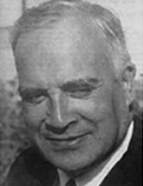

Focusing on "updating" national historiography, he also paid attention to historiographical developments abroad. TSS is thus credited with opening up the Faculty to renowned professors from European universities — an absolute novelty in Portugal — who came to teach courses or give lectures, particularly in the fields of medieval, economic, and social history, such as Charles Verlinden from the University of Ghent (1946 and 1947) and Yves Renouard from the University of Bordeaux (1949 and 1950). Professor Verlinden's courses were published in 1948 by the Dr António de Vasconcelos Institute of Historical Studies under the title of Introduction à l’histoire économique général. The Belgian historian also gave two lectures in Coimbra that called for innovation and methodological updating: 'L'Histoire est une science et une art'; 'Qu'est ce que l'histoire sociale?' To teach medieval Provençal literature, the Frenchman Pierre David came to Coimbra. Having taught for around twenty years at the French University Mission in Poland (Krakow), he was forced to leave in 1939, settling in the city of Mondego from 1941 until his death in 1955. For his part, TSS contributed to these international connections by travelling to Spain, France, Italy, Brazil, and Argentina, where he taught courses, participated in conferences, studied theses published in these countries, and established relationships with historians from these countries. His objectives do not appear to include the aim of creating disciples or inspiring the younger generations to seek new directions for research and the teaching of history, nor to renew his school of thought. His attempt to hire José Mattoso as a professor of medieval history at Coimbra in the early 1960s failed and the renewal of his Faculty would have to wait for the events that followed the revolution of April 1974.
All his research and historiographical production, developed over more than half a century, can be summarised in a trio of main themes: municipal institutions and municipalism; the settlement of Portuguese territory; and the formation of Portugal. To the first, to which he had already devoted his Apontamentos para o estudo da origem das instituições municipais [Notes for the study of the origin of municipal institutions] (1931), he would also dedicate his doctoral dissertation, Subsídios para o estudo da organização municipal da cidade do Porto durante a Idade Média [Elements for the study of the municipal organisation of the city of Porto during the Middle Ages] (1935). Some of the great specialists of the time, professors of Law or Humanities (History), both national and foreign, welcomed the two works, while disagreeing with certain statements in the first, such as the Roman origin of urban municipalities (which attempted to rehabilitate the theses of Alexandre Herculano) and what he called "district municipalities" (L. García de Valdeavellano). They characterised the second work as containing "solid pages of political history", but their criticisms primarily focused on its lack of attention to the "topography and physiognomy of the city and its region" (Paulo Merêa) or on the predominance of legal aspects and the insufficient emphasis on economic and social factors. As one critic, noted, "if law regulates relations between individuals, it is impossible to understand it without first determining what drives such relations" (Charles Verlinden). While some medievalists today continue to criticise the excessive juridical focus and the lack of attention to human geography (J. Mattoso, 1985) or the absence of a "social vision based on material infrastructures that goes beyond the traditional perspective" (H. Baquero Moreno, 1989), others, such as José Marques, highlight aspects of "methodological pioneering" and "innovation" in his work (M. Helena da Cruz Coelho).
This work is financed by national funds through FCT - Foundation for Science and Technology, I.P, in the scope of the projects UIDB/04311/2020 and UIDP/04311/2020.
